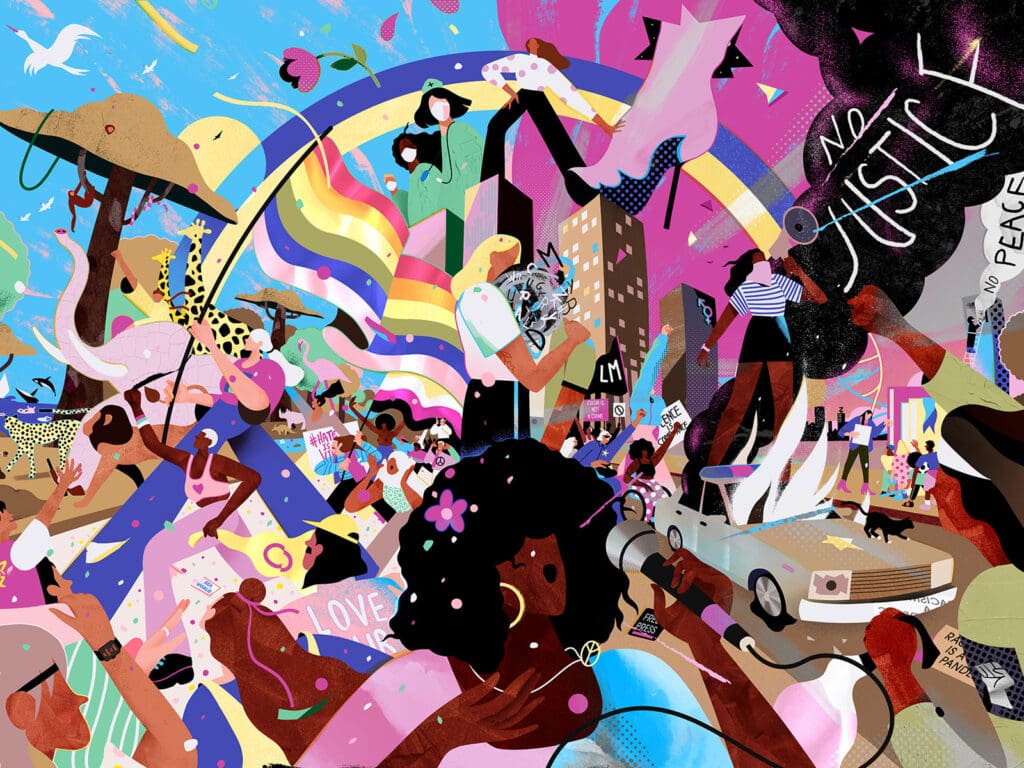You Can’t Discuss Reverse Racism Without Understanding Racism

By: Sasha Legagneur
“Do you think a Black person can be racist to a white person?”. This is a question that fascinated me during my freshman year of college. I first heard about it on YouTube, and it became an inquiry I asked most people around me. As a Black woman with a passion for fighting racism, I denounced the mere idea of reverse racism. Nonetheless, I aimed to see if an argument could be made to make me think otherwise.
The most common response I receive from this question goes as such: let’s say a white person attends a predominantly Black school and the Black kids make fun of or don’t hang out with him or her because of their race- how is this not racist? Someone is being unfairly treated because of the color of their skin- is this not what defines racism?
The answer to that question is yes and no. The problem with validating the idea of reverse racism is that reverse racism is ignorant of power dynamics and systemic racism. Systemic racism is a dangerous weapon that people, governments, workplaces, and simply the routines we seldom question can be found in. Systemic racism could be in the form of a man named Neal versus a man named Jerome being chosen for a position (considering both candidates are equally qualified, of course). It is prevalent in the banking industry, such as when Black families are not approved for loans because the banks do not find them dependable. It is apparent in the historically different jail time sentences of people guilty of smoking cocaine (more popular amongst non-Blacks), versus those smoking crack. Racism is not just teasing someone or not picking them first to be on the gym soccer team- racism is the difference in power between races amongst the major institutions in our lives. I once heard an amazing explanation that reverse racism cannot be true because there is no space in the U.S. where a Black person would ever have more power than a white person. In other words, a Black person could never systematically bring down a white person.
This topic came back to my mind this week during the first session of our Personal Transformation Course. We watched a video on reverse racism, and why it is not real. I then posed this question to my fellow interns, and their responses affirmed my personal beliefs. I want to make it clear that I am not at all condoning teasing, bullying, or anything of that sort towards any race. Particularly as a Black person, I know how it feels to be made fun of and brought down because of my race and physical features such as hair texture which are common amongst my race. Any time I’ve heard of a Black person making fun of a white person, I’ve genuinely questioned why this is happening because they know how that feels. While there are a plethora of answers to why this occurs, my most immediate thought goes to the difference in culture and norms between different nationalities, races, and ethnicities.
Once in college, I posed this question to a white student in a club I was in, and they responded, “Why are you even talking about this?”. I ask readers to ponder upon this question and consider all sides before providing a response that is ignorant of the realities of racism. If you’re not convinced on one side or another, do like me and converse with those around you on what they think. One of ARCCs goals is to spread antiracism through your network, and having these conversations is how we can meet this vision.

